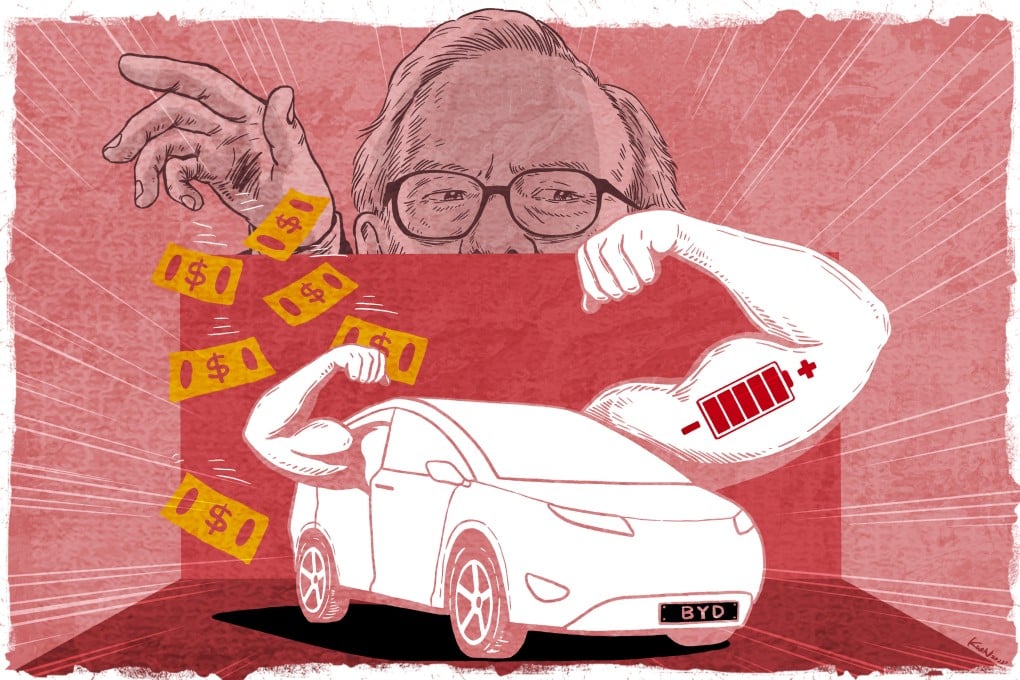China EV war: how BYD grew from Elon Musk’s ridicule to Berkshire Hathaway’s ‘ridiculous’ US$98 billion success in 12 years
- BYD delivered 1.86 million fully electric and plug-in hybrid vehicles in 2022, outselling Tesla’s 1.3 million by 42 per cent
- BYD’s shares have soared 40-fold since Berkshire Hathaway’s Charlie Munger first decided to back the carmaker in 2008

Elon Musk laughed out loud when he was asked about potential competition with BYD, which had brought a battery-powered car to market in southern China three years before Tesla.
The object of Musk’s ridicule was the e6, a compact car tested to run 370 kilometres (230 miles) on a single charge, which took more than eight seconds to go from standstill to 97 kilometres per hour (60 miles per hour).
That was in November 2011, just half a year after Tesla’s US$226 million Nasdaq listing put Musk on the road to becoming one of the world’s wealthiest men.
Tesla would launch its upmarket, high-performance Model S electric car the next year, an event that would add glamour, tech-savviness and bragging rights to owning battery-powered vehicles, ushering in the demise of the internal combustion engine.